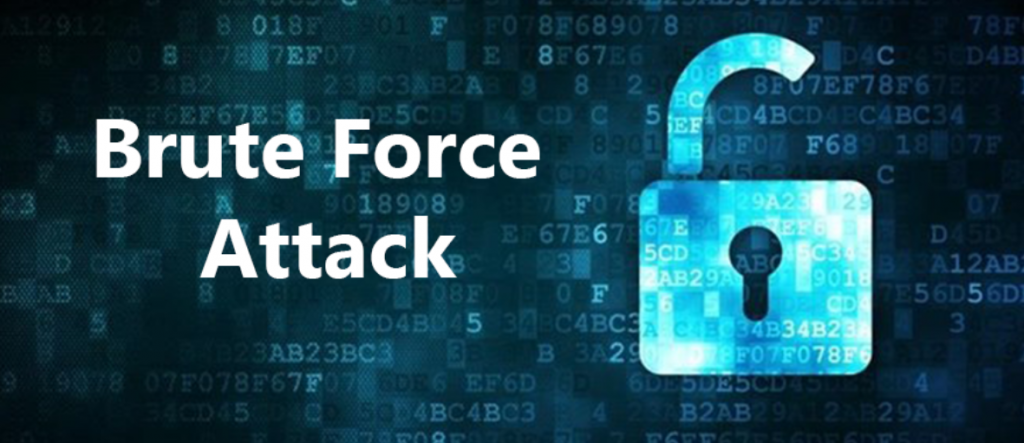A brute force attack uses trial-and-error to guess login info, encryption keys, or find a hidden web page. Hackers work through all possible combinations hoping to guess correctly.
What is brute force
A brute-force attack is one of the most dangerous cyberattacks that you may have no trick in confronting! A brute-force attack aims at the heart of your website or your device’s security, the login password, or encryption keys. It uses the continuous trial-and-error method to explore them decisively.
Brute-force attacks can be made less effective obfuscating the data to be encoded making it more difficult for an attacker to recognize when the code has been cracked or by making the attacker do more work to test each guess. One of the measures of the strength of an encryption system is how long it would theoretically take an attacker to mount a successful brute-force attack against it.

The motive behind brute force attacks
A brute force attack is usually the first point of entry for an attacker when they are looking for vulnerabilities to exploit. Due to the scattergun nature of the attack, they are likely canvassing a large number of organizations at the same time and letting the automated attacks carry out hoping to eventually get a match.
Once they gain access, attackers can continue to use it to escalate their privileges and move laterally through the network. Another common motive of this attack is to look for hidden web pages within a website. These are live pages that are not linked from anywhere on the site. Attackers essentially use brute force attacks to guess URLs of such pages and then attempt to exploit any security vulnerabilities they might find on half finished ones.
Some brute force tools:
- Gobuster
- BruteX
- Dirsearch
- Callow
- SSB
- Hydra
- Burp Suite
- Patator
- Pydictor
- Ncrack
- Hashcat

What hackers gain from brute force
Brute force attackers have to put in a bit of effort to make these schemes pay off. While technology does make it easier, you might still question: why would someone do this?
Here’s how hackers benefit from brute force attacks:
- Profiting from ads or collecting activity data
- Stealing personal data and valuables
- Spreading malware to cause disruptions
- Hijacking your system for malicious activity
- Ruining a website’s reputation

How to defend against brute force attack
There is something in your favor when it comes to brute force attacks – time! Brute force attacks are not instant, so you have some time to spot one in action and take the correct steps to prevent it from going any further. If you can increase the amount of time it takes for an attacker to force your way into your systems, then you put yourself in a good position. Here are a few things you can do:
Captcha: A defense against automated attacks, Captcha adds another layer of security by requiring you to essentially prove that you are human by completing a task (usually a sum or picture identification)
Multi-factor authentication: MFA goes further than Captcha by essentially requiring the person who created the account is the logging in. Most forms of MFA include answering a personal question, but some go as far as identification through biometrics.
Using better passwords: Ensure that your users create passwords that are complex, long and are not made up of known words. If you can make your passwords a random combination of letters, numbers and special characters (at least 10 characters in length), you make it significantly harder to crack your password through brute force.
Monitor attempted logins: If you are continuously monitoring login attempts you should be able to easily spot when there has been an unusually large number of failed logons over a small period of time. You can then take steps to disable the user account in question whilst you investigate.
https://thecyberdelta.com/hashcat/
https://thecyberdelta.com/cross-site-scriptingxss/
https://thecyberdelta.com/what-is-api/









